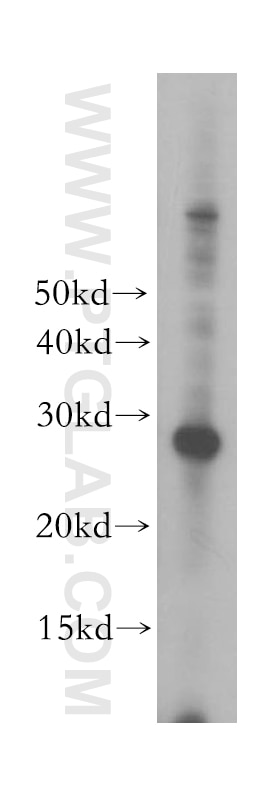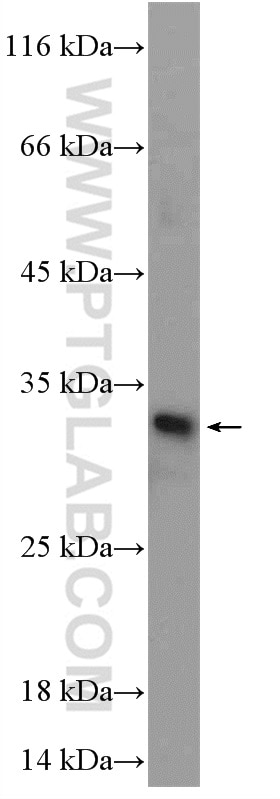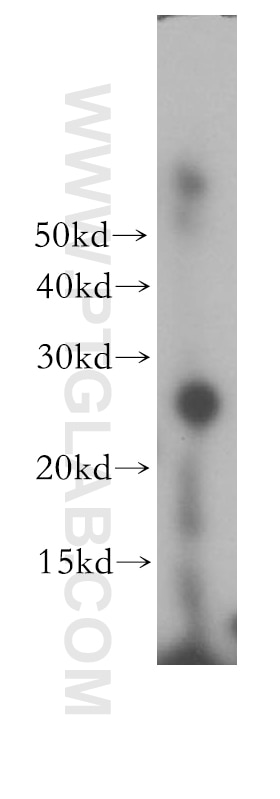- Featured Product
- KD/KO Validated
ORC6 Polyclonal antibody
ORC6 Polyclonal Antibody for WB, ELISA
Host / Isotype
Rabbit / IgG
Reactivity
human, mouse, rat
Applications
WB, IHC, ELISA
Conjugate
Unconjugated
Cat no : 17784-1-AP
Synonyms
Validation Data Gallery
Tested Applications
| Positive WB detected in | Jurkat cells, MCF-7 cells, mouse spleen tissue |
Recommended dilution
| Application | Dilution |
|---|---|
| Western Blot (WB) | WB : 1:500-1:2000 |
| It is recommended that this reagent should be titrated in each testing system to obtain optimal results. | |
| Sample-dependent, Check data in validation data gallery. | |
Published Applications
| KD/KO | See 1 publications below |
| WB | See 3 publications below |
| IHC | See 1 publications below |
Product Information
17784-1-AP targets ORC6 in WB, IHC, ELISA applications and shows reactivity with human, mouse, rat samples.
| Tested Reactivity | human, mouse, rat |
| Cited Reactivity | human |
| Host / Isotype | Rabbit / IgG |
| Class | Polyclonal |
| Type | Antibody |
| Immunogen | ORC6 fusion protein Ag11769 相同性解析による交差性が予測される生物種 |
| Full Name | origin recognition complex, subunit 6 like (yeast) |
| Calculated molecular weight | 252 aa, 28 kDa |
| Observed molecular weight | 28 kDa |
| GenBank accession number | BC063565 |
| Gene symbol | ORC6 |
| Gene ID (NCBI) | 23594 |
| RRID | AB_2283320 |
| Conjugate | Unconjugated |
| Form | Liquid |
| Purification Method | Antigen affinity purification |
| Storage Buffer | PBS with 0.02% sodium azide and 50% glycerol pH 7.3. |
| Storage Conditions | Store at -20°C. Stable for one year after shipment. Aliquoting is unnecessary for -20oC storage. |
Protocols
| Product Specific Protocols | |
|---|---|
| WB protocol for ORC6 antibody 17784-1-AP | Download protocol |
| Standard Protocols | |
|---|---|
| Click here to view our Standard Protocols |
Publications
| Species | Application | Title |
|---|---|---|
Front Immunol Multi-omics analysis reveals the involvement of origin recognition complex subunit 6 in tumor immune regulation and malignant progression
| ||
Aging (Albany NY) Development and validation of a novel prognostic signature in gastric adenocarcinoma. | ||
Oncotarget The synthetic antihyperlipidemic drug potassium piperate selectively kills breast cancer cells through inhibiting G1-S-phase transition and inducing apoptosis. |




